The Language of the New Regime in Syria Is Conciliatory, Positive in Character, But the Future Is Very Uncertain: Talmiz Ahmad
TALMIZ AHMAD, a distinguished Indian diplomat renowned for his expertise in Middle Eastern affairs, has served as India’s Ambassador to Saudi Arabia, Oman, and the UAE. In an interview with MOHD NAUSHAD KHAN, he stated that conflict management, conflict resolution, and a long-term comprehensive security arrangement for the region as a whole are the way forward.
How would you like to respond to the fall of Bashar al-Assad’s regime and the change of guard in Syria?
We were ill-prepared for the movements that were taking place behind the scenes. We have some information now, but not all the information is available. Much of our understanding of what has occurred and the forces in play is based on personal speculation. However, I would say right away that the fall of the regime is unexpected and dramatic.

A destroyed neighborhood in Damascus, Syria, last month. Courtesy: David Guttenfelder/NYT
The situation is still very fluid. An organization called Hayat Tahrir al-Sham (HTS), set up in January 2017, has asserted a certain political role in the new order and was part of the Syrian Salvation Government, which had been in opposition. They have appointed a Prime Minister, and the HTS spokesperson’s remarks are conciliatory, very positive in character, and focus on bringing the country together, accommodating the interests of minorities and women, and ensuring that the country is run transparently.
We still have a long way to go. This is a highly unusual coalition, comprising diverse groups: the Syrian Democratic Forces, backed by the Americans and made up of Kurdish elements; the Syrian National Army (SNA), a Turkish-supported group with Turkmen elements; Turkish soldiers; and Hayat Tahrir al-Sham.
Currently, one group has reached Damascus, and intense fighting is underway. The SNA is actively attacking Kurdish forces. Simultaneously, Israel has conducted relentless airstrikes on various targets in Syria and has occupied some border areas. Given these developments, I am deeply pessimistic about Syria’s future stability.
How is the regime change in Syria likely to impact the Muslim world, particularly the Middle East?
It is again very difficult to say. West Asia has been in the throes of instability and disorder for some time, and many of the underlying issues have led to serious conflict scenarios. But over the last 14 months, we have witnessed the war in Gaza, the expansion of the war to the West Bank and Lebanon, direct tit-for-tat attacks between Israel and Iran, and now, of course, the recent developments in Syria. So, the entire region seems to be convulsed into a conflictual situation, and it’s very difficult to know which way things will progress.
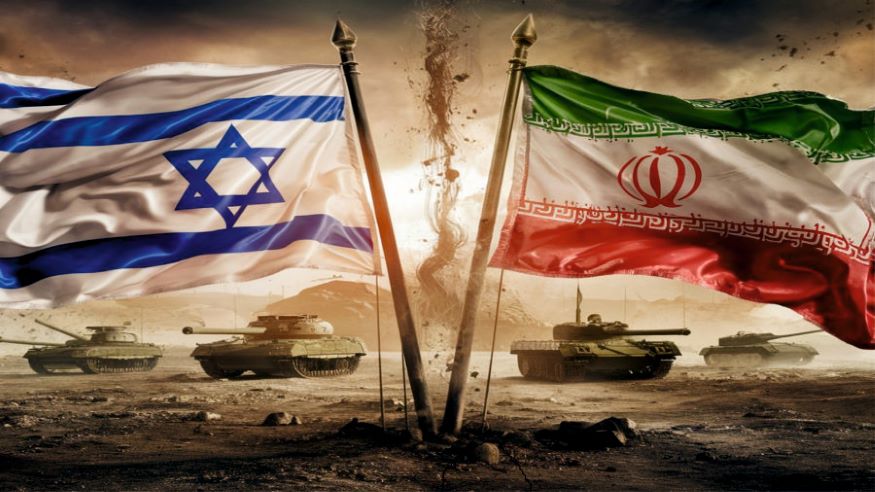 We are also hearing about Israel potentially carrying out a major assault on Iran to destroy its nuclear facilities and perhaps doing so in association with the Americans. But we do not know if this will actually go forward during the Biden administration, or if they will wait for Donald Trump. And if so, what will be Trump’s stance? Fundamentally, if you look at the long-term perspective, the region has certain serious sources of instability and disorder that have never been adequately addressed.
We are also hearing about Israel potentially carrying out a major assault on Iran to destroy its nuclear facilities and perhaps doing so in association with the Americans. But we do not know if this will actually go forward during the Biden administration, or if they will wait for Donald Trump. And if so, what will be Trump’s stance? Fundamentally, if you look at the long-term perspective, the region has certain serious sources of instability and disorder that have never been adequately addressed.
Essentially, all the regimes in the region, from Morocco to Yemen, are authoritarian. First, the state order across the region is very fragile, and therefore authoritarian regimes tend to use security forces to oppress their people and stifle any expression of free will—this is a major source of instability.
Second, there are serious concerns about the economic situation. The countries are oil-rich, but large sections of the population remain unemployed. In non-oil-rich countries, dire poverty persists, coupled with ongoing conflict. We have civil conflict in Yemen, where more than 100,000 people have been killed. We’ve had an ongoing conflict in Syria for a very long time, in which around 500,000 people have died. And of course, there is the conflict in Gaza and Lebanon.
So, not only do we have serious sources of fragility and disorder, but we also have actual conflicts within the region. At the heart of this insecurity and instability is the unresolved Israel-Palestine issue, which has led to major Israeli attacks on Palestinian communities, most recently in Gaza and the West Bank.
How will the developments in Syria impact the axis of resistance against Israel?
For the time being, the axis of resistance has been significantly weakened and, frankly, no longer exists in its previous form.
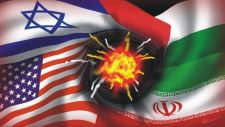 The attack on Hezbollah, Hamas, the decimation of the top leadership of both groups, and now the regime change in Syria with the emergence of a new government hostile to Iran have effectively ended Iran’s policy of creating support bases in different countries across West Asia.
The attack on Hezbollah, Hamas, the decimation of the top leadership of both groups, and now the regime change in Syria with the emergence of a new government hostile to Iran have effectively ended Iran’s policy of creating support bases in different countries across West Asia.
It has now suffered a serious setback and lacks support bases to come to its aid. Yes, there are cadres in Iraq and Yemen, but I don’t think they have the capacity to pursue Iran’s interests effectively in the face of a major assault. Iran also now faces challenges from Israel, possibly working with the U.S., if they decide to launch a major attack on Iran.
What do you think should be the role of India in Syria?
India has crucial interests in the stability of West Asia, particularly in relation to its energy security, trade, investments, joint ventures, and the presence of a strong 8-million-strong community. India has traditionally maintained bilateral relations and avoided involvement in the region’s security challenges.
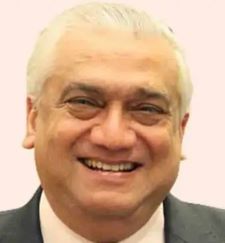
Talmiz Ahmad
I believe that India should now reconsider its traditional posture and examine how it can use its influence to promote conflict management in the region. Specifically, I suggest India work with like-minded countries, including Japan, Korea, China, Indonesia, Malaysia, and regional players such as Saudi Arabia, Qatar, and the UAE, to immediately counsel Netanyahu not to escalate matters and carry out major attacks on Iran.
Any attack on Iran will have serious consequences for the entire region. Iran dominates one half of the Gulf, controls half of the Strait of Hormuz, and shares borders with Pakistan, Afghanistan, and Central Asia. If the conflict spreads, India’s interests, along with those of many other countries, will be adversely affected.
I would strongly recommend that India immediately use its diplomatic resources and influence to engage Israel, particularly Prime Minister, to focus on conflict management. Conflict management itself is an incredibly challenging task, requiring simultaneous attention to multiple dimensions. First, we need to de-escalate the conflict in the West Bank, Gaza, Lebanon, and Syria. Following this, humanitarian assistance must be provided, including medical aid, food supplies, and shelter for displaced individuals.
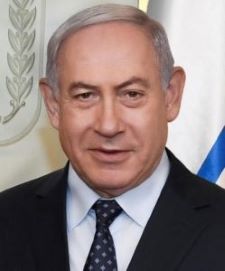
Benjamin Netanyahu
Once immediate humanitarian concerns are addressed, we will need to confront longer-term governance challenges in Gaza and the West Bank, including revitalizing the Palestinian Authority and organizing elections for legitimate leadership.
After initial conflict management successes, focus should shift to consultations, diplomatic initiatives, and confidence-building measures to rebuild trust among the parties. This effort will pave the way for a long-term solution—a comprehensive security arrangement that unites all countries in the region on a shared platform.
I agree that this is a long-term challenge, but these are the three stages I see: conflict management, conflict resolution, and a long-term comprehensive security arrangement for the region as a whole.
What would you like to say about the future of Syria?
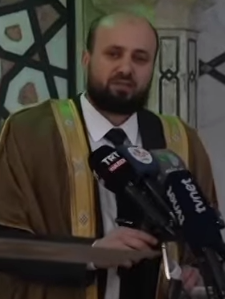
Mohammed Al Bashir, Prime Minister of Syria
The regime change in Syria is the result of a conspiracy orchestrated by Türkiye, Israel, and the U.S., each pursuing its own agenda for removing Bashar al-Assad from power. For Türkiye, the primary objective was to exert pressure on the Kurds and safeguard its interests in northeastern Syria. Assad’s lack of support for these goals made his removal a priority for Ankara.
Israel’s agenda was to curb Iran’s influence and Hezbollah’s presence in Syria. By removing Assad, Israel aimed to disrupt Iran’s access to the Mediterranean and prevent Syria from being used as a conduit for supplying Hezbollah in Lebanon. There was also a domestic political element: bolstering Netanyahu’s image, especially after the events of October 7 last year.
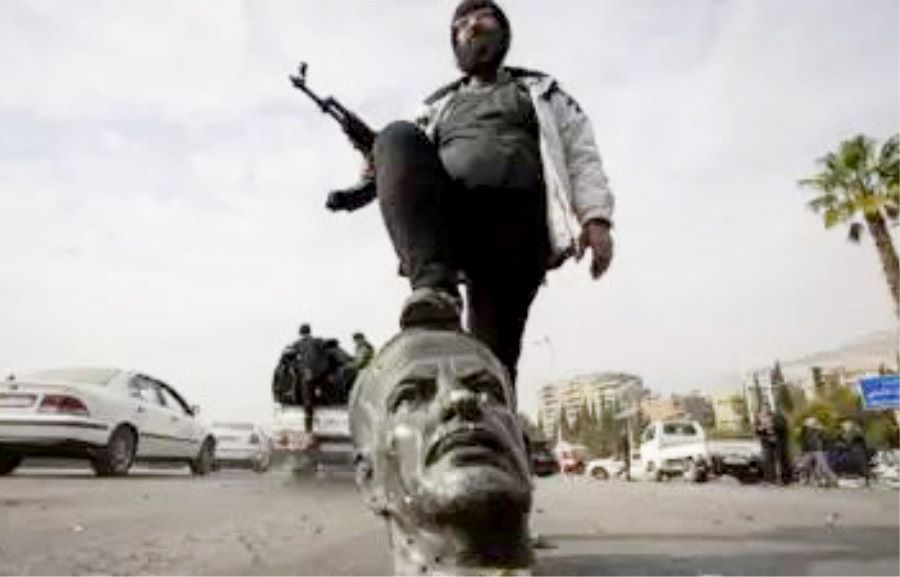 Key developments, such as the targeted killing of Hezbollah leaders and Hamas leaders, and now the regime change in Syria, were designed to demonstrate Netanyahu’s strength to the Israeli public. However, I believe these are short-term tactical advantages, and some of the domestic issues Netanyahu faces will persist in the months and years ahead.
Key developments, such as the targeted killing of Hezbollah leaders and Hamas leaders, and now the regime change in Syria, were designed to demonstrate Netanyahu’s strength to the Israeli public. However, I believe these are short-term tactical advantages, and some of the domestic issues Netanyahu faces will persist in the months and years ahead.
The third player, the U.S., has focused on pushing Iran out of Syria, weakening Hezbollah, and embarrassing Russia. This strategy aims to highlight Russia’s inability to protect its air and naval bases effectively, undermining its credibility as a regional security partner. However, this appears to be a short-term plan, and none of the parties seem genuinely concerned with long-term peace and stability in the region.
My greatest fear is that Syria will follow the path of Afghanistan, Iraq, and Libya, where regime change, driven by American forces, left the country in ruins, costing hundreds of thousands of lives. I am deeply worried about Syria’s future and believe it has been a great disservice to both Syria and the region that these three countries have so cynically initiated this major assault on the Syrian regime. ![]()
Courtesy: Radiance Viewsweekly
_________
Also Read:
Assad’s Downfall Alters Old Regional Alliances
End of Syrian Civil War: What Lies Ahead?
Disclaimer : PunjabTodayNews.com and other platforms of the Punjab Today group strive to include views and opinions from across the entire spectrum, but by no means do we agree with everything we publish. Our efforts and editorial choices consistently underscore our authors’ right to the freedom of speech. However, it should be clear to all readers that individual authors are responsible for the information, ideas or opinions in their articles, and very often, these do not reflect the views of PunjabTodayNews.com or other platforms of the group. Punjab Today does not assume any responsibility or liability for the views of authors whose work appears here.
Punjab Today believes in serious, engaging, narrative journalism at a time when mainstream media houses seem to have given up on long-form writing and news television has blurred or altogether erased the lines between news and slapstick entertainment. We at Punjab Today believe that readers such as yourself appreciate cerebral journalism, and would like you to hold us against the best international industry standards. Brickbats are welcome even more than bouquets, though an occasional pat on the back is always encouraging. Good journalism can be a lifeline in these uncertain times worldwide. You can support us in myriad ways. To begin with, by spreading word about us and forwarding this reportage. Stay engaged.
— Team PT

